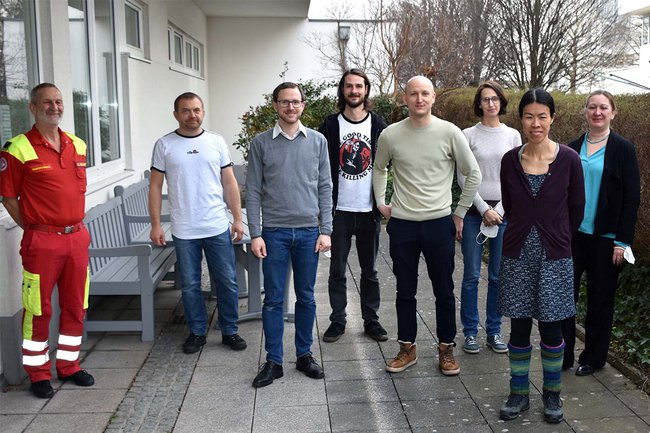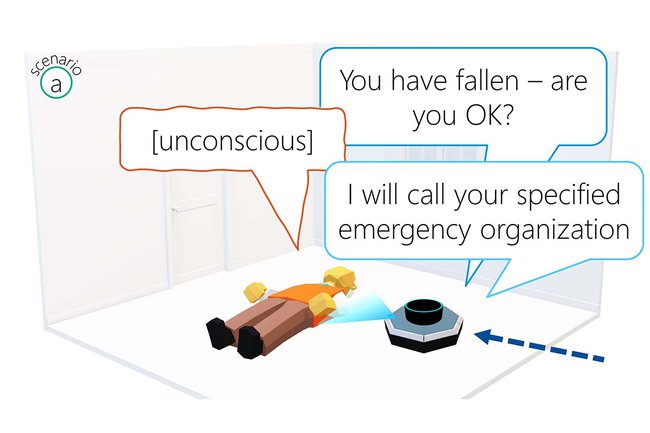The Vacuum Cleaner that Helps You When You Fall
Developing Vacuuming Robots into Assistance Systems for the Elderly

Smart Companion, a joint research project of the St. Pölten University of Applied Sciences, Robert Bosch AG, the Academy for Research on Aging at Haus der Barmherzigkeit, and the Arbeiter-Samariter-Bund, is to be developed further to combine autonomous robot sensors with smart speech interaction to create new assistance systems.
The increasing life expectancy means that the number of elderly persons is also growing. One third of all people over 65 are likely to fall once a year – and the tendency increases with age. Almost a third of these falls result in injuries. Smart Companion is an assistance system that uses artificial intelligence to recognise dangerous situations and call for help. It combines existing household technologies such as vacuuming robots with widespread smart speakers like Alexa & co.
"When it comes to an autonomous and self-determined life, smart technological systems can be used that increasingly permeate our living and housing environments. In an emergency situation such as a fall it is particularly important to keep the time until help arrives as short as possible. Our goal is to achieve this and thereby reduce long-term implications. Everyday technology that is already widely used can help to increase availability and acceptance", explains Andreas Jakl, project manager and UAS lecturer at the Departments of Media and Digital Technology, and Healthcare.
Test Users Try the System under Realistic Conditions
The local group for Linz of the Austrian Arbeiter-Samariter-Bund already offers home emergency call solutions. Based on these experiences, everyday scenarios are developed in which the Smart Companion could assist users. In one scenario, for example, the Smart Companion asks the user whether everything is alright and triggers an alarm if it suspects a fall. In a user-centred development process, the concepts and prototypes are continually examined and tested with focus groups.
"In our decades of working with emergency call systems, one of the Samariterbund’s basic principles has always been to offer our clients the latest technological solutions in a target-oriented, user-friendly, and state-of-the-art manner. We consider the organic interaction and fall detection to be innovative components of a next-generation emergency call system", emphasises Michael Kaindleinsberger of the Samariterbund Linz.
 © FH St. Pölten
© FH St. Pölten
Together with Bosch AG, industrial aspects in the study and development of Smart Companion are considered early on. The company’s vast experience in the implementation of such systems will be of vital importance for the research’s practical relevance.
"The early detection or even prevention of falls is a key objective. I believe that the idea of equipping an already widely used household device with such new and helpful functions is extremely promising. The technical implementation is a challenge, which makes us even keener for the joint project", says Sven Dominika of Robert Bosch AG.
Data Privacy as a Top Priority
How can we use digital technologies reasonably and responsibly for our lives? How do we make sure that the Smart Companion respects its user’s privacy? An Ethics Board has been addressing these and further complex ethical questions since the very beginning of the project. The Ethics Board constantly monitors privacy issues and makes sure that the users can take self-determined decisions at all times.
"When designing a technology that works closely to and with people, it is important to involve these people in the development process early on. This is particularly true when it comes to elderly people. While there are big differences in terms of technical affinity, researchers enjoy a lot of personal input from this user group, something that is very valuable for the projects", explains Matei Capatu of the Academy for Research on Aging at Haus der Barmherzigkeit.
Further information on the project Smart Companion is available on our research website.
